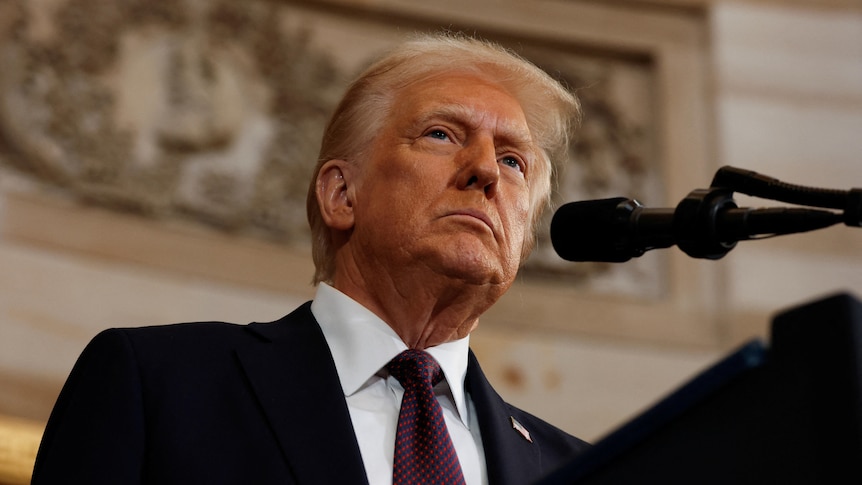For decades, France called the shots in much of Africa, especially in the Sahel. Its soldiers, diplomats, and companies shaped politics and economics in Mali, Niger, and Burkina Faso. But in recent years, that grip has weakened dramatically.
Coups, street protests, and shifting alliances have pushed French troops out and shattered France’s traditional influence. Several African governments now openly signal that they want to cut old colonial ties and chart a new path.
And as France retreats, the competition to fill the vacuum is heating up—fast. Among the most active new players is the United States, determined to secure its position.
The clearest example of this shift is in Central Africa, particularly in the Democratic Republic of Congo. The DRC is home to massive reserves of cobalt, tantalum, gold, copper, and other minerals essential for modern technology—from electric vehicle batteries to smartphones to renewable energy systems. Whoever builds influence in the DRC shapes the future of global supply chains. And Washington clearly wants a seat at that table.
Many African policymakers and researchers do not buy Washington’s claims that its interest is purely about aid, governance, or “shared values.” They argue that the real motive is securing strategic minerals—resources the US economy needs, and which Washington does not want to see fall entirely under the control of rivals. In this crowded race, the US is determined not to lose ground.
In Kinshasa, this geopolitical tension is palpable in almost every high-level meeting. Congolese leaders emphasize their right to control their resources and ensure that their people benefit. But global powers continue to see Congo not just as a partner, but as a battleground.
The US has intensified official visits, high-level security discussions, and investment missions, projecting the image of a reliable ally. Yet many observers insist that the real objective is influence, not partnership.
Some Congolese activists are even more blunt. They say Washington wants enough dominance in the region to sideline not only Russia and China but also traditional Western actors like France, the UK, and Belgium.
The competition for cobalt and other minerals is fierce, and every power is maneuvering to keep the others out. Critics argue that the US wants a political and security arrangement that allows American companies consistent access to minerals on favorable terms.
The stakes are most visible in the crisis in eastern DRC. The conflict—decades old—continues to displace millions. Armed groups operate freely, neighboring countries are accused of interference, and the region remains extremely fragile.
Washington has recently stepped up its involvement, meeting leaders, proposing mediation frameworks, and advocating for ceasefires between Kinshasa and Kigali.
But trust is low. Some local commentators argue that Washington’s peace efforts are less about genuine stability and more about shaping a political outcome that protects American interests. They point to how US diplomatic focus often aligns closely with mining regions—especially areas marked by insecurity.
From this point of view, the US appears to prefer a political environment where access to minerals is guaranteed, even if that means tolerating a level of instability that keeps local institutions weak and foreign leverage strong. US officials deny this, insisting they only seek peace and stability. But the doubts persist.
Some analysts go further, arguing that instability can benefit foreign companies because weak oversight makes it easier to negotiate contracts, influence policy, or secure mining concessions with minimal scrutiny.
When a nation’s institutions are overstretched and its leadership is consumed by security concerns, powerful outsiders can operate more freely. In that sense, instability becomes not just a tragedy—it becomes a tool.
Whether one agrees with this assessment or not, one fact is undeniable: Africa has become a major arena for global powers competing for strategic resources.
France’s retreat from the Sahel shows how quickly influence can shift and how fast new actors can move in. Some African governments see an opportunity in this new landscape—an opening to break old patterns and negotiate from a position of strength.
Across the Sahel, the changes have been dramatic. Countries that once hosted thousands of French troops have expelled them, shut down bases, and sent diplomats packing.
Protesters in Bamako, Ouagadougou, and Niamey wave anti-French banners as new international partners rush in, offering security deals, mining contracts, and political support. The United States is watching closely, aware that its own influence could erode if it stays passive.
This scramble is not confined to the Sahel. The DRC is at its center. Its minerals are simply too valuable in a world racing toward green technology. What happens in Congo affects not just Africa—it affects the global economy.
American officials maintain that their engagement is about promoting stability, improving governance, and preventing rivals from dominating global mineral supply chains. Supporters argue that US involvement is necessary in a region plagued by chronic conflict.
But many Africans remain skeptical. They argue that Washington, just like other major powers, treats African countries as chess pieces rather than true partners. The surge in US diplomacy in Kinshasa and Kigali—combined with intense interest in mining—raises questions about whose interests are ultimately being served.
In truth, it increasingly appears that Washington prefers a fragmented, controllable DRC that leaves the door wide open for unrestricted access to critical minerals.
Some Congolese support US investments because they bring jobs and infrastructure. But beneath the surface, America’s strategic goal is clear: use Africa as a stage to counter rivals and maintain global dominance.
African nations have learned from history. They now use great-power competition to bargain for better deals. But this global tug-of-war—between the US, France, China, and others—places enormous strain on already fragile regions, especially the DRC and Rwanda.
With France stepping back and the US stepping in, African leaders face a difficult balancing act: how to take advantage of foreign offers without losing control over their resources or their sovereignty. For the DRC, the stakes could not be higher. Its minerals can fuel genuine development—or allow new forms of neo-colonial exploitation.

